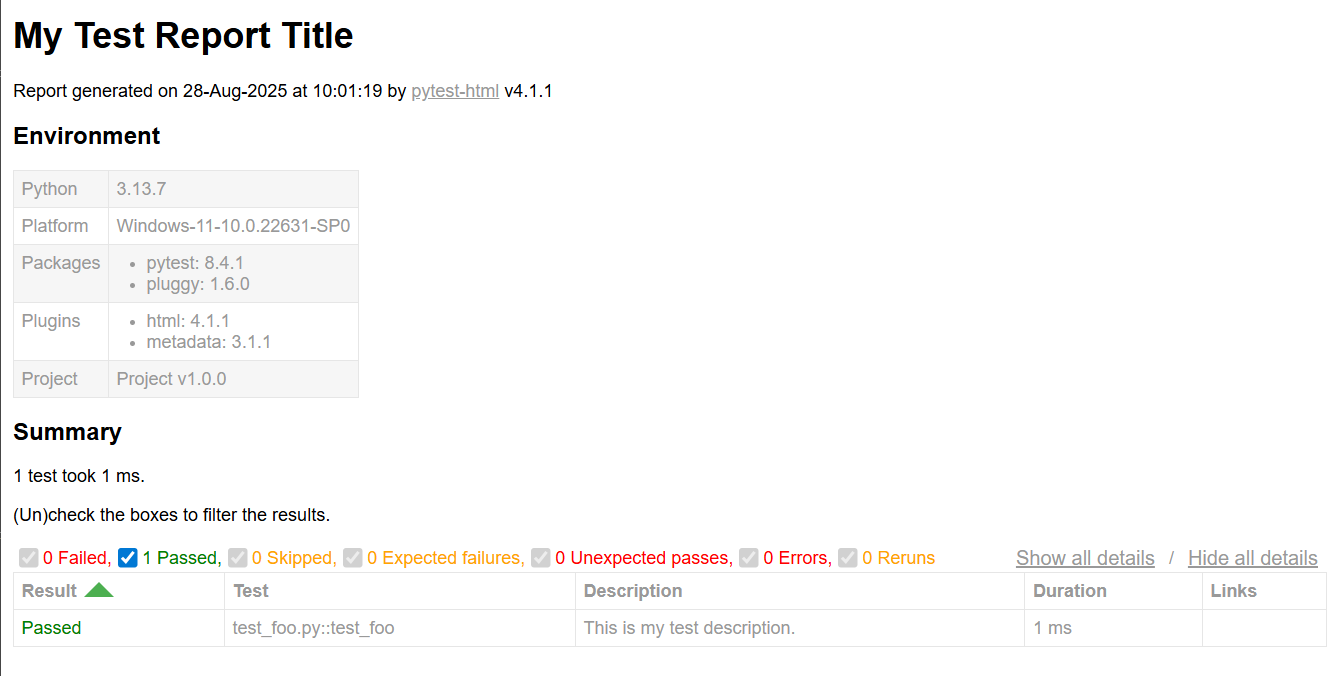Python - Customize pytest HTML Reports
Adding additional information to test reports with pytest-html
pytest is the most commonly used test framework for Python. There are many great plugins available for enhancing its functionality. One commonly used plugin is pytest-html. It is used for generating HTML test reports that contain information about tests that were run (test names, pass/fail/skip status, error messages, timing, etc).
The documentation for pytest-html is a little bit lacking when it comes to customizing the test report. I wanted to add additional information like a report title, project version, and a description of each test. Below is what I came up with.
Using the plugin is very simple. First install it along with pytest:
1
pip install pytest pytest-html
Then create your tests using the standard naming conventions. For example, create a file named test_foo.py containing the following test:
1
2
3
def test_foo():
"""This is my test description."""
assert 1 == 1
I added a docstring to my test function with a description of the test. We will later see this next to the test in the report.
I added the following to my pytest configuration (conftest.py):
1
2
3
4
5
6
7
8
9
10
11
12
13
14
15
16
17
18
19
20
21
22
23
24
25
26
27
28
29
30
import pytest
from pytest_metadata.plugin import metadata_key
TITLE = "My Test Report Title"
PROJECT = "Project v1.0.0"
def pytest_configure(config):
config.stash[metadata_key]["Project"] = PROJECT
def pytest_html_report_title(report):
report.title = TITLE
def pytest_html_results_table_header(cells):
cells.insert(2, "<td><b>Description</b></td>")
def pytest_html_results_table_row(report, cells):
description = getattr(report, "description", "")
cells.insert(2, f"<td>{description}</td>")
@pytest.hookimpl(hookwrapper=True)
def pytest_runtest_makereport(item, call):
outcome = yield
if item.function.__doc__:
outcome._result.description = item.function.__doc__
This configuration adds a title, project version information in the “Environment” table, and an additional column in the report details named “Description”, that contains the docstring from each test.
I can execute the test and generate a report by running:
1
pytest --html=report.html --self-contained-html
The generated report (report.html) looks like this:
(tested using pytest 8.4.1 and pytest-html 4.1.1)
